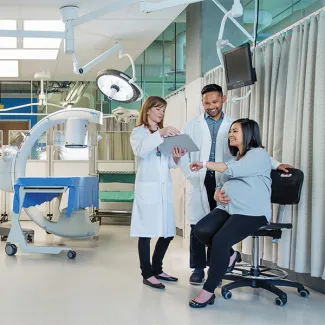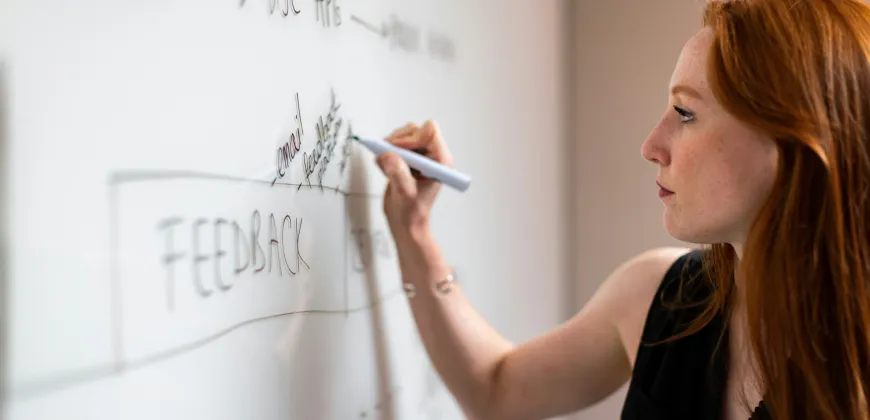The shift to virtual learning within clinical education

By Jennifer Baumbusch, Associate Professor in the School of Nursing
The social distancing requirements put in place to prevent the spread of COVID-19 sped up a shift towards virtual clinical education and health-care delivery that was already underway.
The expertise of clinical educators became more important than ever, as they needed to apply their knowledge of best practices in curriculum development and educational strategies with an understanding of how to guide transformative change within teams and systems.
To take one example, in-service learning for health-care practitioners has traditionally been offered as in-person sessions in labs and conference rooms. Those learning environments are now online, but it is not a straight A-to-B transfer.
Clinical educators needed to consider the most appropriate strategy for the content – is it better to have an online video meeting in real time or to develop online modules that people can review on their own? And what about the requirement for hands-on practice in clinical care – what can be shifted online and what needs to be done in person? Patient education within health-care settings also needs to be considered.
This has been highlighted by requirements to educate patients and the public about coronavirus precautions, as well as the ongoing need to educate patients about their treatment options and managing chronic conditions.
Our students in the MHLP in Clinical Education program gain the knowledge they will need to develop relevant and engaging educational experiences for health-care practitioners, students and the public.
They have the opportunity to apply this knowledge in their practicum, and in 2020, many of these placements enabled students to dive into the world of virtual education.
The practicum projects are wide-ranging, from those that are clinical education focused – such as learning needs assessments and curriculum development – to others that are more business oriented, such as program evaluation. This opportunity to apply what they’ve been learning over the course of their degree under the mentorship of an industry leader is a big draw for students.
Our students tell us that the practicum requires them to draw on their professional and academic expertise, including knowledge they’ve gained within the program – from their clinical education courses on theoretical foundations, curriculum development and evidence-based practice to business classes on organizational leadership and project management.
The work they do requires them to engage stakeholders throughout the health-care system, in clinical and point-of-care through to policy, administration and professional regulation. Many of our students have seen their practicum lead directly to employment opportunities and a career shift away from point of care.
It’s an exciting time to be working within clinical education, and I think it’s safe to say that many of the practices we all adopted in response to the coronavirus pandemic will continue even after widespread vaccinations and a return to more traditional learning and working environments.






